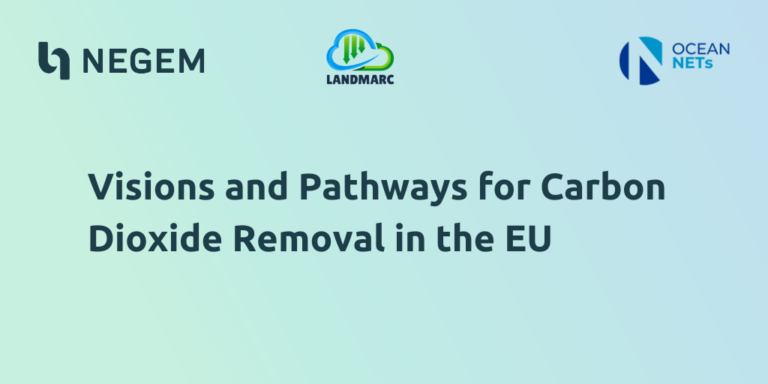
NEGEM Final Event Summary
The final event of NEGEM project Visions and Pathways for Carbon Dioxide Removal in the EU took place at the Square Brussels Convention Centre on

The final event of NEGEM project Visions and Pathways for Carbon Dioxide Removal in the EU took place at the Square Brussels Convention Centre on
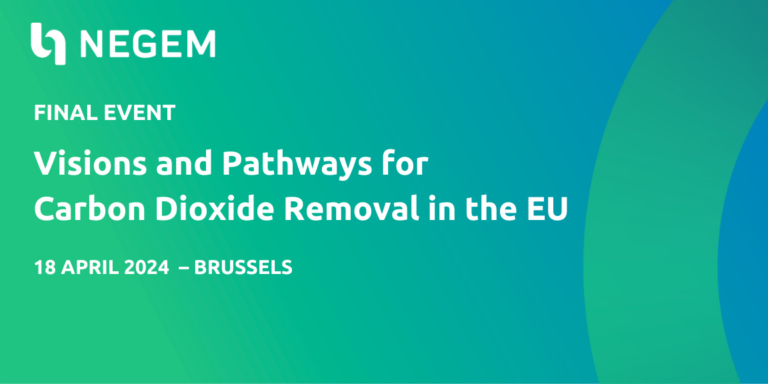
18 April 2024, 9.30-16.40 SQUARE BrusselsMont des Arts, 1000 Brussels, Belgium Entrance Coudenberg 3, Room The Arc This event will discuss about the realistic potentials

Biomass-based Technologies and Practices for Carbon Dioxide Removal Monday 5 June 2023, 16.15-18.20 CEST, Bologna and Online This event organized by NEGEM project as a
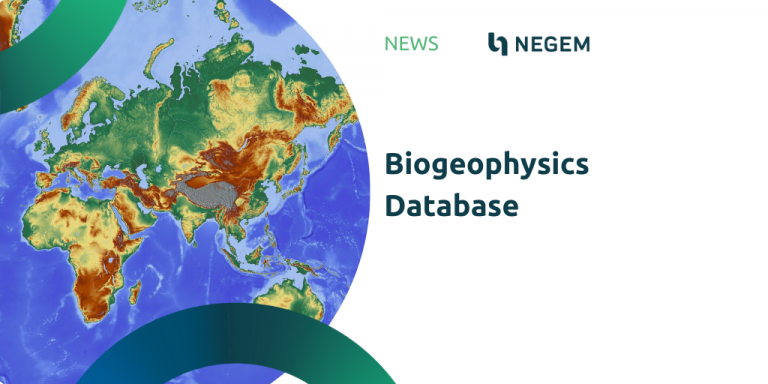
As part of its NEGEM activities, Imperial College of London is developing two databases of NETPs and of biogeophysics data sources, to support mathematical analyses
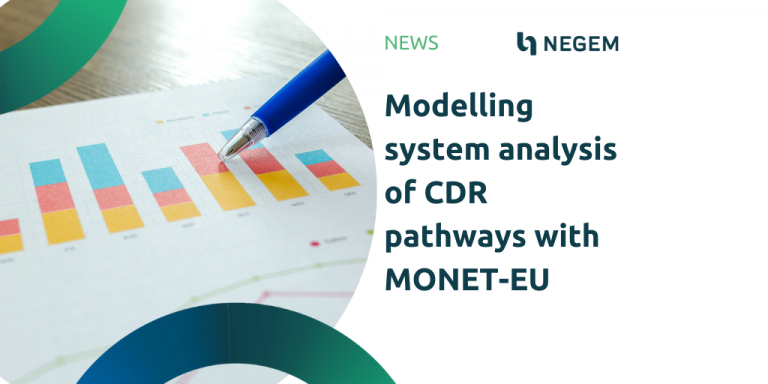
Integrated Assessment Models (IAMs) extensively feature mainly bioenergy and carbon capture and storage (BECCS) and afforestation as potential carbon dioxide removal (CDR) options. The reliance

NETPs include a vast array of practises and technologies that capture CO2 through biological and/or geological storage, that are currently at different levels of readiness,
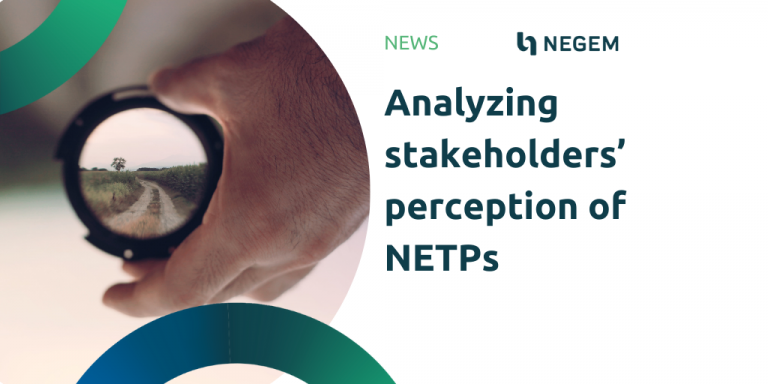
In order to successfully contribute to net-zero, NETPs will need to secure social license to operate (SLO), defined as an “ongoing approval and broad acceptance

To achieve the ambitious global changes set out in the latest IPCC report an “equitable and fair” allocation of carbon reduction and carbon removal targets
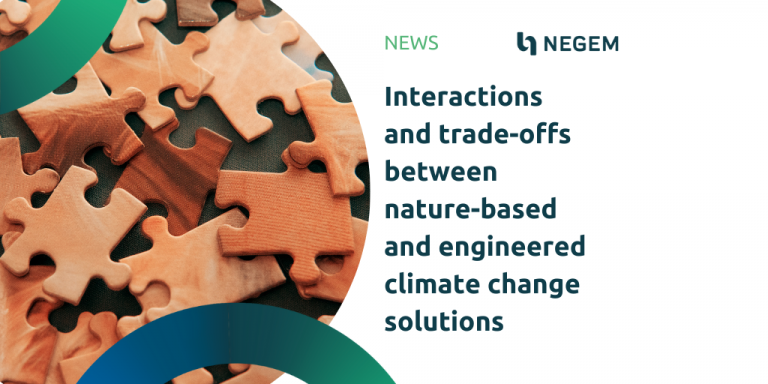
In the last two years a growing number of companies announced ambitions to achieve net zero emissions across their activities and supply chains and, in
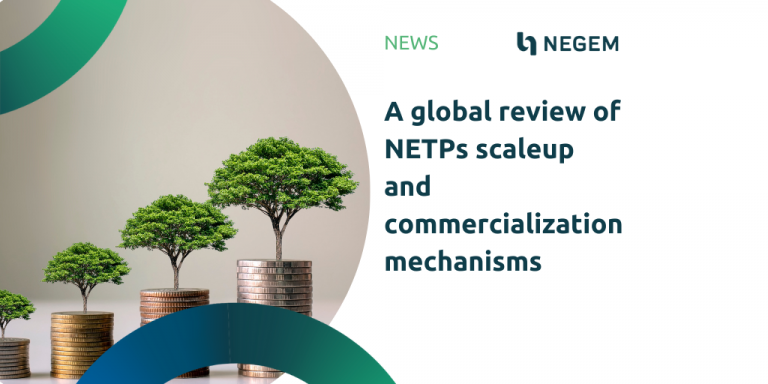
Mechanisms that support NETPs are an important part of scaling up the removal capacity required in the majority of net zero modelling scenarios. A recent
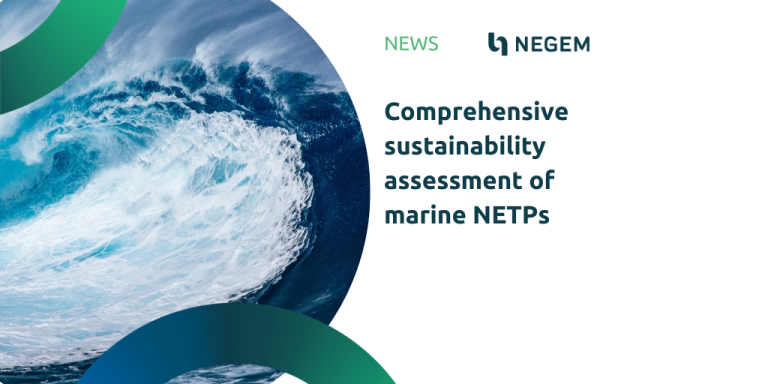
The IPCC scenarios mainly focus on bioenergy with carbon capture and storage and afforestation/reforestation as Carbon Dioxide Removal (CDR) strategies. However, the conservation and restoration

The science is clear that we will most likely need to remove large quantities of carbon from the atmosphere this century, and many countries and

In NEGEM, an entire work package is dedicated to an integrated, whole-systems approach for developing nation-specific portfolios of NETPs for Europe, aiming to optimize all
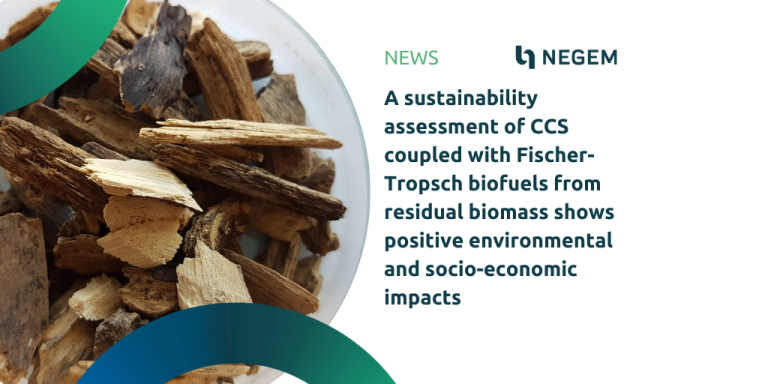
Implementing carbon capture and storage (CCS) in a Fischer-Tropsch (FT) process producing fuel from residual forest biomass would significantly improve its CO2 balance, while providing

On the 25th of May, a two hour NEGEM workshop was organized by the Potsdam Institute for Climate Impact Research (PIK) and Imperial College London

According to the NEGEM multi-disciplinary approach, the NETPs assessment implies to evaluate sustainable potentials as well as environmental impacts, side effects and trade-offs of large-scale
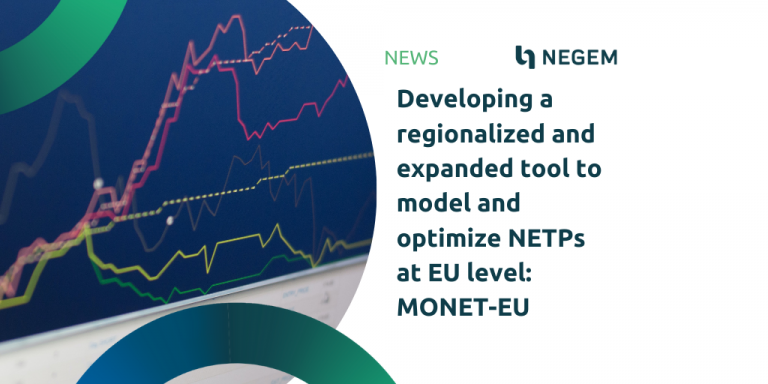
One of the objectives of NEGEM is to produce a quantitative analysis of the effectiveness, potential and impacts of deploying Negative Emission Technologies and Practices
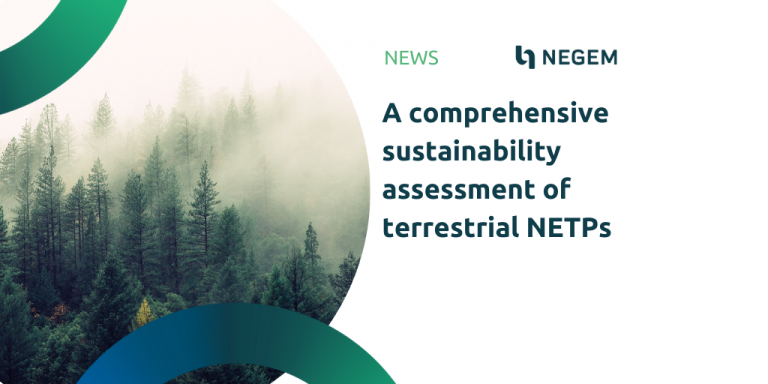
As part of its effort to investigate the feasibility and sustainability of negative emission technologies and practices (NETPs), NEGEM partners carried out an assessment of
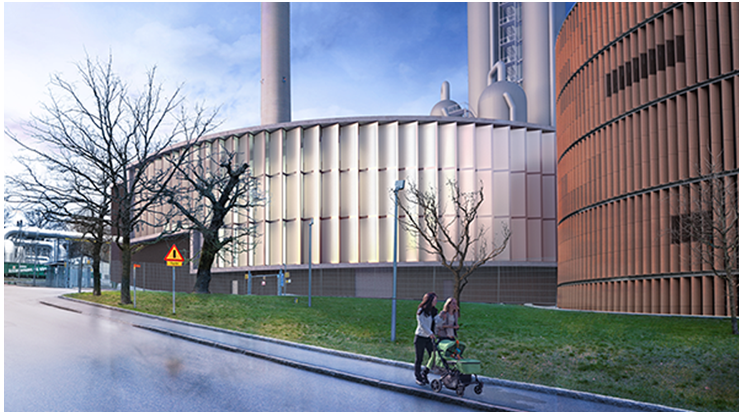
NEGEM partner, Stockholm Exergi, made shortlist for EU Innovation Fund (EIF). As one of the selected corporations that now can send in an extend application
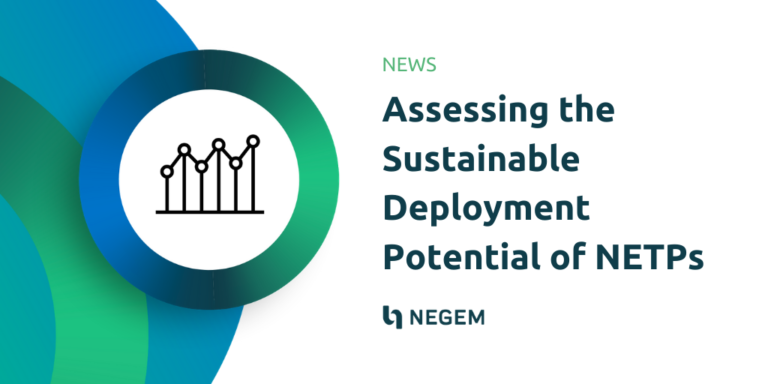
Curbing CO2 emissions to reach net-zero is urgently needed to limit global warming to 1.5°C. Although the strategies designed to attain this target must prioritize

Negative emission technologies and practices (NETPs) have a significant role in the IPCC 1.5°C and 2°C climate change mitigation scenarios, but what is the realistic
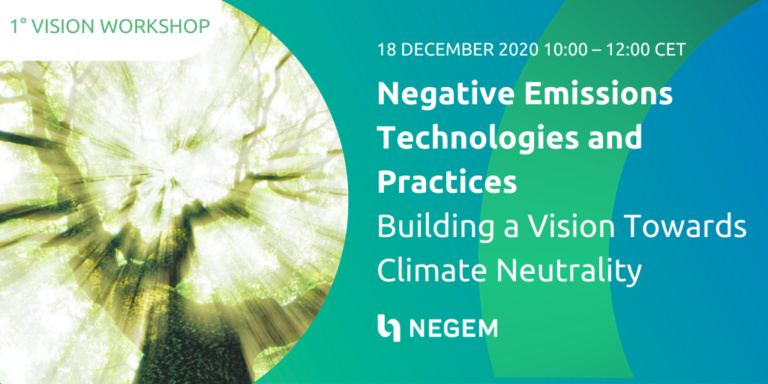
1st NEGEM vision workshop 18 December 2020, 10.00-12.00 CET Organized by: VTT Finland in collaboration with ETA Florence Renewable Energies Summary The event was the first
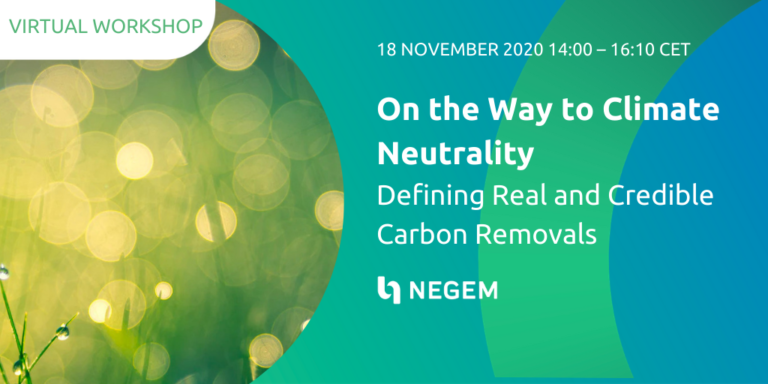
On the 18th of November 2020, in the framework of NEGEM project, Bellona Europa and Carbon Market Watch hosted a virtual workshop entitled “On the

Wednesday 18 November 2020, 14:00 – 16:10 CET – Online The IPCC 1.5°C Special Report states that, in addition to the urgent need to cut
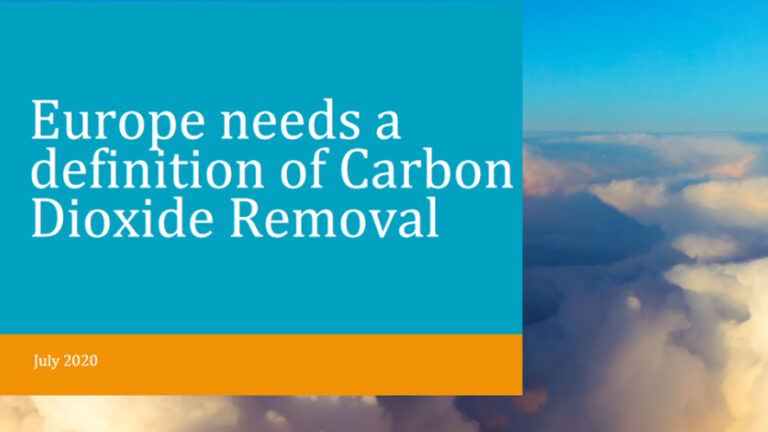
The Commission’s proposal for the first European Climate Law aiming for climate neutrality by 2050 acknowledges the role of carbon dioxide removal (CDR), however there is still a gap in the definition of what CDR is and a general lack of knowledge about negative emissions.
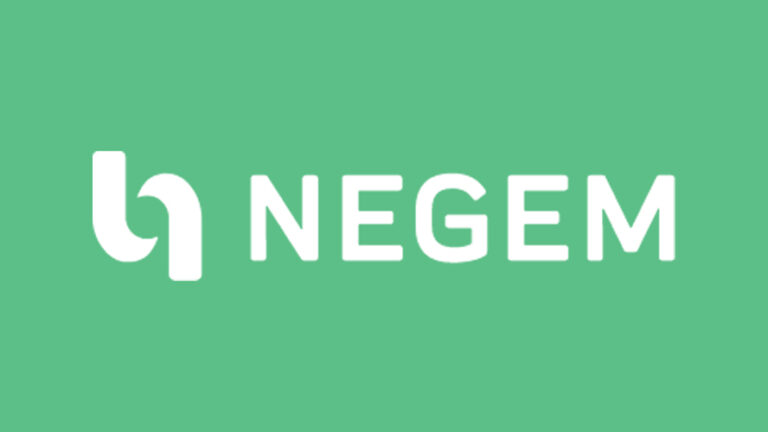
A team of scientists together with climate and policy experts from leading international organizations in 11 countries, grouped under the new Horizon 2020 project NEGEM, will quantify and assess the feasibility and the realistic potential of carbon dioxide removal, as a supplementary strategy to emission mitigation.
| Cookie | Duration | Description |
|---|---|---|
| cookielawinfo-checkbox-advertisement | 1 year | Set by the GDPR Cookie Consent plugin, this cookie is used to record the user consent for the cookies in the "Advertisement" category . |
| cookielawinfo-checkbox-analytics | 11 months | This cookie is set by GDPR Cookie Consent plugin. The cookie is used to store the user consent for the cookies in the category "Analytics". |
| cookielawinfo-checkbox-functional | 11 months | The cookie is set by GDPR cookie consent to record the user consent for the cookies in the category "Functional". |
| cookielawinfo-checkbox-necessary | 11 months | This cookie is set by GDPR Cookie Consent plugin. The cookies is used to store the user consent for the cookies in the category "Necessary". |
| cookielawinfo-checkbox-others | 11 months | This cookie is set by GDPR Cookie Consent plugin. The cookie is used to store the user consent for the cookies in the category "Other. |
| cookielawinfo-checkbox-performance | 11 months | This cookie is set by GDPR Cookie Consent plugin. The cookie is used to store the user consent for the cookies in the category "Performance". |
| elementor | never | This cookie is used by the website's WordPress theme. It allows the website owner to implement or change the website's content in real-time. |
| viewed_cookie_policy | 11 months | The cookie is set by the GDPR Cookie Consent plugin and is used to store whether or not user has consented to the use of cookies. It does not store any personal data. |
| Cookie | Duration | Description |
|---|---|---|
| _gat | 1 minute | This cookie is installed by Google Universal Analytics to restrain request rate and thus limit the collection of data on high traffic sites. |
| Cookie | Duration | Description |
|---|---|---|
| _ga | 2 years | The _ga cookie, installed by Google Analytics, calculates visitor, session and campaign data and also keeps track of site usage for the site's analytics report. The cookie stores information anonymously and assigns a randomly generated number to recognize unique visitors. |
| _gid | 1 day | Installed by Google Analytics, _gid cookie stores information on how visitors use a website, while also creating an analytics report of the website's performance. Some of the data that are collected include the number of visitors, their source, and the pages they visit anonymously. |
| CONSENT | 2 years | YouTube sets this cookie via embedded youtube-videos and registers anonymous statistical data. |
| Cookie | Duration | Description |
|---|---|---|
| VISITOR_INFO1_LIVE | 5 months 27 days | A cookie set by YouTube to measure bandwidth that determines whether the user gets the new or old player interface. |
| YSC | session | YSC cookie is set by Youtube and is used to track the views of embedded videos on Youtube pages. |
| yt-remote-connected-devices | never | YouTube sets this cookie to store the video preferences of the user using embedded YouTube video. |
| yt-remote-device-id | never | YouTube sets this cookie to store the video preferences of the user using embedded YouTube video. |